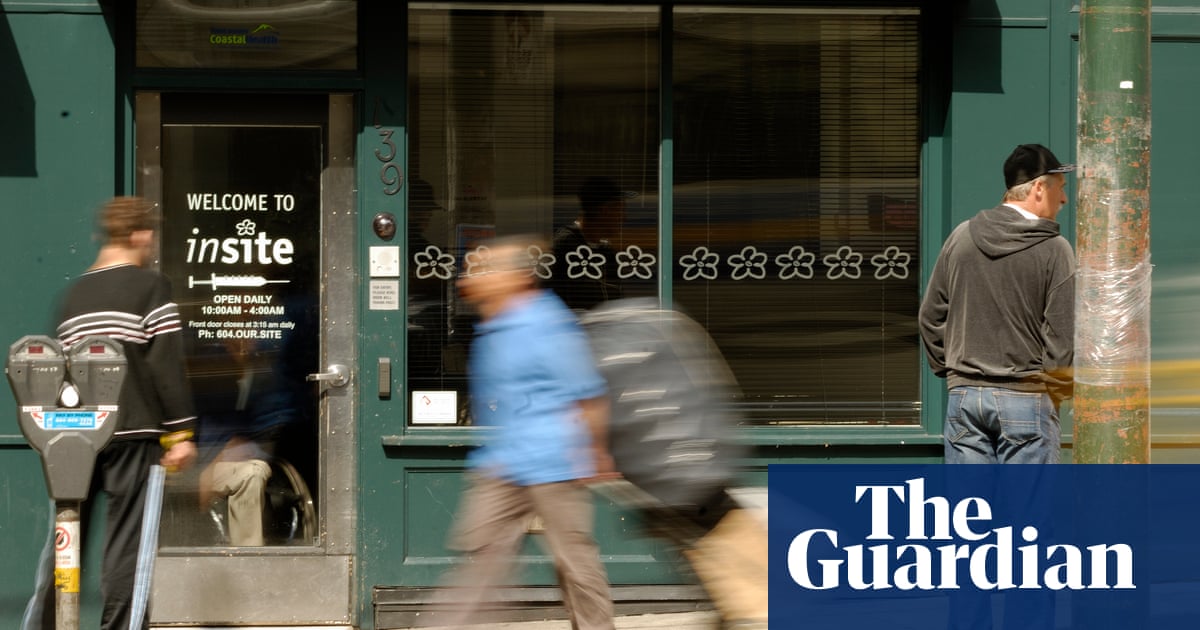
British Columbia has abruptly reversed course on its landmark experiment decriminalizing the possession of certain illicit drugs, citing mounting public frustration and “disorder” in the Canadian province.
Premier David Eby said on Friday that he had asked the federal government to reintroduce a ban on public drug use, formally ending the country’s first large attempt to gauge the effects of decriminalization.
“Keeping people safe is our highest priority. While we are caring and compassionate for those struggling with addiction, we do not accept street disorder that makes communities feel unsafe,” Eby said.
When the province began its experiment in 2023 of decriminalizing, but not legalizing, the possession for small amounts of illicit drugs, the move was heralded as a dramatic re-thinking of a criminal justice system that has long been used to punish people who use drugs and suffer from addiction. The plan was set to run for three years and would be closely monitored by at the federal and provincial levels.
At the time Canada’s health minister said it would serve as a template for other jurisdictions and the province’s health officer said it would “make a difference” in the the spiraling overdose crisis that had engulfed British Columbia.
“Addiction is a health issue, it is not a criminal law issue, and that principle is what the entire decriminalization project was about. It was about removing the stigma for people struggling with addiction, preventing them potentially from reaching out to others to ask for help … for fear of arrest, for fear of a criminal record,” Eby said on Friday as he announced the scaling back of the decriminalization effort.
While experts caution that fatalities from tainted drugs won’t be solved without addressing an increasingly adulterated drug supply, public frustration has grown over open drug use and a mounting death toll, with the government facing accusations it has become too lenient.
“Sometimes, tough love is needed,” Eby said.
The province, which had previously received an exemption under the federal Controlled Drugs and Substances Act, has now asked for key elements of exemption to be reversed.
While the personal possession of 2.5g of cocaine, methamphetamine, MDMA and opioids such as fentanyl will be permitted in private spaces, such as homes, tents and safe injection sites, the police will soon be able to seize drugs if people are using in public spaces “when necessary” or to arrest them in “exceptional circumstances”.
“People are dying from deadly street drugs and we see the issues with public use and disorder on our streets,” said Mike Farnworth, the provincial minister of public safety and solicitor general, said in a statement. “As we continue to go after the gangs and organized criminals who are making and trafficking toxic drugs, we’re taking action now to make it illegal to use drugs in public spaces, and to expand access to treatment to help people who need it most.”
But the province’s decision has also been sharply criticized by advocacy groups.
“BC never gave #decrim a fair chance. It is blamed for social issues that are the result of policy failure[s] resulting in a housing crisis & poverty,” Moms Stop the Harm, posted on X. “Rather than address the real issues [Eby] found a convenient scapegoat. Our loved ones die.”
Source: theguardian.com

















